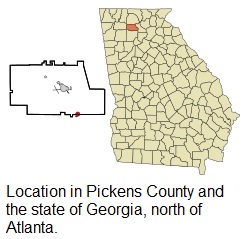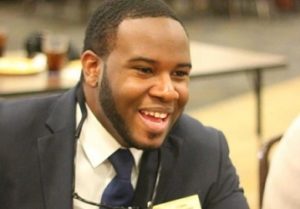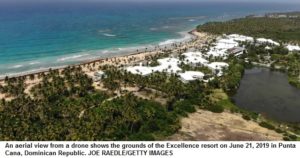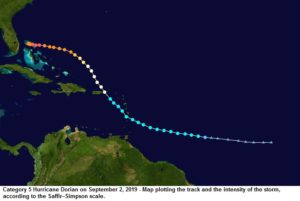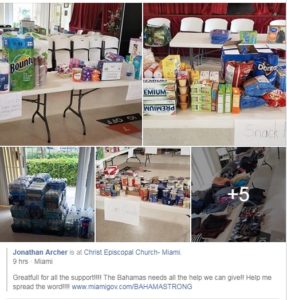Go Lean Commentary
Welcome to Yugoslavia … one of the most classic Toxic Environments in the history of civilization.
Wait, what?!
That country does not exist anymore. (See the encyclopedic reference in the Appendix A below). The land is still there; the people are still there … mostly, but the culture and national identity is gone.
The only things that remain are lessons … for other communities – like us in the Caribbean – to learn the consequences of an unchecked, un-remediated Toxic Environment. We need to look, listen and learn the lessons. But first consider the historic references in the VIDEO here:
VIDEO – The Breakup of Yugoslavia – https://youtu.be/oiSgAiM0d8A
Posted April 30, 2016 – Why did Yugoslavia split up? In this video, I attempt to look at the complex situation of the former Yugoslav republics and what led to their breakup.
Free audiobook and a 30-day free trial at: http://www.audible.com/wonderwhy
Thanks to Audible for sponsoring this video!MUSIC Satiate Kevin MacLeod (incompetech.com)All images/footage used in this video are either public domain, CC or free use.Fair use as this is a transformative work for educational proposes.
No doubt, the Balkan region was Toxic in the distant past and the recent past. This is the same region that ignited World War I, back in 1914. We had addressed this history before, in a previous Go Lean commentary; see highlights in Appendix B below.

What are the lessons that we glean from this history, then and now?
- The one country of Yugoslavia was an integrated and consolidated federation that combined these 6 neighboring member-states in a Single Market:
Bosnia and Herzegovina, Croatia, Macedonia, Montenegro, Serbia, and Slovenia - The 6 member-states were not homogenous; there were many differences in their populations, i.e Official languages: Serbo-Croatian, Macedonian and Slovene.
- Religiosity do not contribute to peace; in fact, religious intolerance can lead to Civil War. Yugoslavia featured 3 major faiths: Western Catholicism, Eastern Orthodox and Islam.
- Historical disputes and grievances do not just dissipate – they must be reconciled – or future generation will still contest the issue.
- Minorities will always be persecuted by majorities in Toxic Environments.
The lessons from World War I cannot be ignored.
The lessons from the recent Yugoslavia conflicts cannot be ignored.
This discussion on Yugoslavia underpins a consideration of the Toxic Environment that we suffer here in the Caribbean. The 2013 book Go Lean…Caribbean, serving as a roadmap for the introduction of the Caribbean Union Trade Federation (CU), asserts that Caribbean economic, security (Public Safety) and governing stakeholders must all work together to abate our Toxic Environment.
This commentary is a continuation on the Teaching Series related to Toxic Environments where we addressed the pseudo-phobias – irrational fear or hatred – and how these bring on the “fight or flight” psycho-drama in everyone’s response. In Yugoslavia, “fight” was frequently the selected option. Every month, the movement behind the Go Lean book presents a Teaching Series to address issues germane to Caribbean life and culture. For this month of September 2020, this is entry 3-of-6, we are looking at the history of persecuted minorities in this Eastern Europe country-culture – that is now extinct.
Consider here, the full catalog of the series this month:
- Toxic Environment: Ready for Football – Washington “Redskins”
- Toxic Environment: Homophobia – The problem is the Hate, not the Fear
- Toxic Environment: Opposite of Diversity & Inclusion
- Toxic Environment: Lessons from Yugoslavia
- Toxic Environment: Ease of Doing Business
- Toxic Environment: Make the Caribbean Great (Anew)
After 100 years, according to the foregoing VIDEO, the member-states that constituted Yugoslavia have now reconciled their Toxic Environments from the past – they gave up on integration. They gave up on diversity and just decided to continue as independent homogeneous nations – no leverage, no economies-of-scale, no “whole is more than the sum of its parts”. Sad!
The Go Lean roadmap urges the Caribbean region to confederate, asserting that we double-down on Diversity & Inclusion among the 30 different member-states. We need the inherent benefits; we need the leverage; we need the economies-of-scale; we need the “whole to be more than the sum of its parts”. Consider this list of previous blog-commentaries on the subject of confederation, when it worked and when it did not:
| https://goleancaribbean.com/blog/?p=20072 | Rise from the Ashes – Political Revolutions: Calling ‘Balls & Strikes’ |
| https://goleancaribbean.com/blog/?p=19570 | European Role Model: Not when ‘Push’ comes to ‘Shove’ |
| https://goleancaribbean.com/blog/?p=19494 | BHAG – One Voice: Foreign Policy and Diplomatic Stance |
| https://goleancaribbean.com/blog/?p=19452 | BHAG – Regional Currency – ‘In God We Trust’ |
| https://goleancaribbean.com/blog/?p=3090 | Introduction to Europe – All Grown Up |
| https://goleancaribbean.com/blog/?p=816 | The Future of CariCom – A Technocratic Confederacy |
Yugoslavia was a unified country across a large geographic area. They were among the most successful communities; they even hosted the Olympics – Sarajevo 1984. They could have been in the G20 and be one of the “best addresses on the planet”, if only they had learned “how to get along” with each other, despite ethnic differences.
We must do better …
We must consider Yugoslavia as a cautionary tale for us in the Caribbean. We want Diversity & Inclusion; we want every distinct group in our society to have a “seat at the table, with no one being on the menu”.
- Different races, no problem.
- Different languages, no problem.
- Different religions, no problem.
- Different colonial heritage, no problem.
Yes, we can …
Let’s work to remediate and mitigate our Toxic Environment. Let’s make our homeland a better place to live, work and play. 🙂
About the Book
The book Go Lean…Caribbean serves as a roadmap for the introduction and implementation of the technocratic Caribbean Union Trade Federation (CU), for the elevation of Caribbean society – for all member-states. This CU/Go Lean roadmap has these 3 prime directives:
- Optimization of the economic engines in order to grow the regional economy to $800 Billion & create 2.2 million new jobs.
- Establishment of a security apparatus to ensure public safety and protect the resultant economic engines.
- Improve Caribbean governance to support these engines, including a separation-of-powers between the member-states and CU federal agencies.
The Go Lean book provides 370-pages of turn-by-turn instructions on “how” to adopt new community ethos, plus the strategies, tactics, implementations and advocacies to execute so as to reboot, reform and transform the societal engines of Caribbean society.
Download the free e-Book of Go Lean … Caribbean – now!
Who We Are
The movement behind the Go Lean book – a non-partisan, apolitical, religiously-neutral Community Development Foundation chartered for the purpose of empowering and re-booting economic engines – stresses that reforming and transforming the Caribbean societal engines must be a regional pursuit. This was an early motivation for the roadmap, as pronounced in the opening Declaration of Interdependence (Pages 11 – 13):
x. Whereas we are surrounded and allied to nations of larger proportions in land mass, populations, and treasuries, elements in their societies may have ill-intent in their pursuits, at the expense of the safety and security of our citizens. We must therefore appoint “new guards” to ensure our public safety and threats against our society, both domestic and foreign. The Federation must employ the latest advances and best practices … to assuage continuous threats against public safety.
xi. Whereas all men are entitled to the benefits of good governance in a free society, “new guards” must be enacted to dissuade the emergence of incompetence, corruption, nepotism and cronyism at the peril of the people’s best interest. The Federation must guarantee the executions of a social contract between government and the governed.
xiv. Whereas a free market economy can be induced and spurred for continuous progress, the Federation must install the controls to better manage aspects of the economy: jobs, inflation, savings rate, investments and other economic principles. Thereby attracting direct foreign investment because of the stability and vibrancy of our economy.
xvi. Whereas security of our homeland is inextricably linked to prosperity of the homeland, the economic and security interest of the region needs to be aligned under the same governance. Since economic crimes … can imperil the functioning of the wheels of commerce for all the citizenry, the accidence of this Federation must equip the security apparatus with the tools and techniques for predictive and proactive interdictions.
Sign the petition to lean-in for this roadmap for the Caribbean Union Trade Federation.
————–
Appendix A – Yugoslavia
Yugoslavia (literally. ‘South Slavic Land’) was a country in Southeast Europe and Central Europe for most of the 20th century. It came into existence after World War I in 1918[B] under the name of the Kingdom of Serbs, Croats and Slovenes by the merger of the provisional State of Slovenes, Croats and Serbs (it was formed from territories of the former Austro-Hungarian Empire) with the Kingdom of Serbia, and constituted the first union of the South Slavic people as a sovereign state, following centuries in which the region had been part of the Ottoman Empire and Austria-Hungary. Peter I of Serbia was its first sovereign. The kingdom gained international recognition on 13 July 1922 at the Conference of Ambassadors in Paris.[2] The official name of the state was changed to Kingdom of Yugoslavia on 3 October 1929.
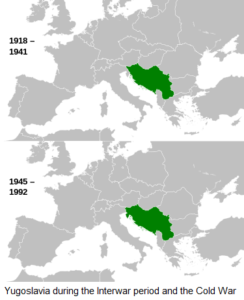 Yugoslavia was invaded by the Axis powers on 6 April 1941. In 1943, a Democratic Federal Yugoslavia was proclaimed by the Partisan resistance. In 1944 King Peter II, then living in exile, recognised it as the legitimate government. The monarchy was subsequently abolished in November 1945. Yugoslavia was renamed the Federal People’s Republic of Yugoslavia in 1946, when a communist government was established. It acquired the territories of Istria, Rijeka, and Zadar from Italy. Partisan leader Josip Broz Tito ruled the country as president until his death in 1980. In 1963, the country was renamed again, as the Socialist Federal Republic of Yugoslavia (SFRY).
Yugoslavia was invaded by the Axis powers on 6 April 1941. In 1943, a Democratic Federal Yugoslavia was proclaimed by the Partisan resistance. In 1944 King Peter II, then living in exile, recognised it as the legitimate government. The monarchy was subsequently abolished in November 1945. Yugoslavia was renamed the Federal People’s Republic of Yugoslavia in 1946, when a communist government was established. It acquired the territories of Istria, Rijeka, and Zadar from Italy. Partisan leader Josip Broz Tito ruled the country as president until his death in 1980. In 1963, the country was renamed again, as the Socialist Federal Republic of Yugoslavia (SFRY).
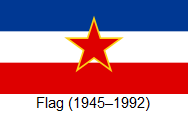 The six constituent republics that made up the SFRY were the SR Bosnia and Herzegovina, SR Croatia, SR Macedonia, SR Montenegro, SR Serbia, and SR Slovenia. Serbia contained two Socialist Autonomous Provinces, Vojvodina and Kosovo, which after 1974 were largely equal to the other members of the federation.[3][4] After an economic and political crisis in the 1980s and the rise of nationalism, Yugoslavia broke up along its republics’ borders, at first into five countries, leading to the Yugoslav Wars. From 1993 to 2017, the International Criminal Tribunal for the former Yugoslavia tried political and military leaders from the former Yugoslavia for war crimes, genocide, and other crimes committed during those wars.
The six constituent republics that made up the SFRY were the SR Bosnia and Herzegovina, SR Croatia, SR Macedonia, SR Montenegro, SR Serbia, and SR Slovenia. Serbia contained two Socialist Autonomous Provinces, Vojvodina and Kosovo, which after 1974 were largely equal to the other members of the federation.[3][4] After an economic and political crisis in the 1980s and the rise of nationalism, Yugoslavia broke up along its republics’ borders, at first into five countries, leading to the Yugoslav Wars. From 1993 to 2017, the International Criminal Tribunal for the former Yugoslavia tried political and military leaders from the former Yugoslavia for war crimes, genocide, and other crimes committed during those wars.
After the breakup, the republics of Montenegro and Serbia formed a reduced federative state, Serbia and Montenegro, known officially until 2003 as the Federal Republic of Yugoslavia (FRY). This state aspired to the status of sole legal successor to the SFRY, but those claims were opposed by the other former republics. Eventually, it accepted the opinion of the Badinter Arbitration Committee about shared succession[5] and in 2003 its official name was changed to Serbia and Montenegro. This state dissolved when Montenegro and Serbia each became independent states in 2006, while Kosovo proclaimed its independence from Serbia in 2008.
…
Source: Retrieved September 24, 2020 from: https://en.wikipedia.org/wiki/Yugoslavia
—————–
Appendix B – Previous Blog from June 28, 2014
A Lesson in History – 100 Years Ago Today – World War I
On this date 100 years ago, Archduke Franz Ferdinand of Austria, heir presumptive to the Austro-Hungarian throne, and his wife, Sophie, Duchess of Hohenberg, were shot dead in Sarajevo by Serbian assassins. The political objective of the assassination was to break off Austria-Hungary’s south-Slavic provinces so they could be combined into a Yugoslavia. The assassination led directly to the First World War when Austria-Hungary subsequently issued an ultimatum against Serbia, which was partially rejected. Austria-Hungary then declared war, marking the outbreak of the war. [a]
 Multilateral military alliances abounded in that day among the Great Powers: Austria-Hungary with Germany (Triple Alliance of 1882) and Serbia with Russia and France (Triple Entente of 1907) and Britain. When war ensued later in August 1914, these were the sides. Many other military treaties were triggered thereby engaging empires/countries like Ottoman-Turks, Portugal, Japan and Italy, (The United States joined in 1917 allied with Britain). The resulting conflict was dubbed the Great War until subsequently rebranded World War I.
Multilateral military alliances abounded in that day among the Great Powers: Austria-Hungary with Germany (Triple Alliance of 1882) and Serbia with Russia and France (Triple Entente of 1907) and Britain. When war ensued later in August 1914, these were the sides. Many other military treaties were triggered thereby engaging empires/countries like Ottoman-Turks, Portugal, Japan and Italy, (The United States joined in 1917 allied with Britain). The resulting conflict was dubbed the Great War until subsequently rebranded World War I.
…
The people of the Caribbean understand societal decline and dysfunction all too well.
What have we learned in the 100 years since the events of June 28, 1914? How will these lessons help us today?
- Minority Equalization – Bullying and terrorism must be mitigated at the earliest possible opportunity – the foregoing photo depicts the oppression the minority Balkan communities perceived in the Austria-Hungarian Empire. As a minority group they felt bullied in their own country; their Slavic culture and language set them apart, and their religious adherence led to even more dissension (Austria-Hungary: Catholic/Lutheran; Serbia: Eastern Orthodox and Bosnia- Herzegovina: Muslim) There were terrorist activities for decades before in the quest for independence. In the past 100 years, this same modus operandi has been repeated in countless locales around the world. The CU security pact must defend against regional threats, including domestic terrorism. This includes gangs and their junior counterparts, bullies. The CU plans for community messaging in the campaign to mitigate bullying.
- Reconciliation of issues are not optional, more conflict will emerge otherwise – The issues that wedged the people of the Balkans were not resolved in World War I. More dissensions continued leading to World War II, and continued during the Cold War while most of the Balkans were under Soviets control. When the Soviet Union collapsed in 1991, civil war and ethnic cleansings proceeded in the Balkans. Their issues/differences had not been reconciled. A common practice after WW I & WW II was the prosecution of war crimes. But in South Africa an alternative justice approach was adopted, that of Truth & Reconciliation Commissions (TRC). These have become more successful as the emphasis is less on revenge and more on justice normalization. Many other countries have instituted similar TRC models. The CU plans for the TRC model for dealing with a lot of latent issues in the last Caribbean century (i.e. Cuba, Haiti, Dominican Republic, etc).
- Self-determination of local currencies – in planning for postwar reconstruction, U.S. representatives with their British counterparts studied what had been lacking between the two world wars: a system of international payments that would allow trade to be conducted without fear of sudden currency depreciation or wild fluctuations in exchange rates—ailments that had nearly paralyzed world capitalism during the Great Depression. There is a multiplier associated with the currency in the money supply. Therefore the communities of the Caribbean must embrace its own currency, the Caribbean Dollar (managed by a technocratic Caribbean Central Bank), thereby bringing local benefits from local multipliers.
- Security assurances must be enabled to complement economics objectives – A lot of dissension has resulted when economic engines become imperiled due to security conflicts. The instability then causes more economic dysfunction, which results in even more security threats – a downward spiral. The CU/Go Lean posits that security apparatus must be aligned with all economic empowerments. This is weaved throughout the roadmap.
- Negotiate as partners not competitors – The end of World War I immediately set-up ripe conditions for WW II, because of the harsh terms in the Peace Treaties. The CU maintains that, negotiation is an art and a science. More can be accomplished by treating a negotiating counterpart as a partner, rather than not an adversary. (See VIDEO below).
- Cooperatives and sharing schemes lighten burdens among neighbors – The Balkan conflict of 1914 resulted in a World War because of cooperative treaties with aligning nations. Despite this bad outcome, the practice of cooperatives and sharing still has more upside than downside. The CU will employ cooperatives and sharing schemes for limited scopes within the prime directives of optimizing the economic, security and governing engines.
- Promote opportunities for the Pursuit of Happiness – A lot of terrorist activities are executed by “suicide” agents (i.e. suicide bombers). The Go Lean roadmap posits the when the following three fundamentals are in place, the risks of suicide is minimal: 1. something to do, 2. someone to love, 3. something to hope for. These are the things a man (or woman) needs to be happy.
- Consider the Greater Good – Complying with this principle would have prevented a lot of conflict in the past century. The philosophy is directly quoted as: “It is the greatest good to the greatest number of people which is the measure of right and wrong”. The CU/Go Lean roadmap calls for a number of measures that strike directly at the Greater Good mandate: accountable justice institutions, economic empowerment for rich and poor, strategic education initiatives, proactive health/wellness, etc.institutions, economic empowerment for rich and poor, strategic education initiatives, proactive health/wellness, etc.
 Why is leadership so important?
Why is leadership so important?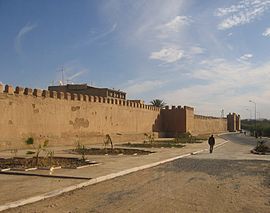


 Those countries are the exact destinations for many of the Caribbean Diaspora. The Black-and-Brown of the Caribbean had fled their homeland in search of refuge but instead have found a more
Those countries are the exact destinations for many of the Caribbean Diaspora. The Black-and-Brown of the Caribbean had fled their homeland in search of refuge but instead have found a more 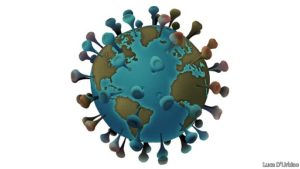 That last one – pandemics – is all the rage right now. There are no Ands, Ifs or Buts, with the current Coronavirus-COVID-19 crisis, Good Leadership would do a better job of managing such a crisis. We also have to contend with policing the Police.
That last one – pandemics – is all the rage right now. There are no Ands, Ifs or Buts, with the current Coronavirus-COVID-19 crisis, Good Leadership would do a better job of managing such a crisis. We also have to contend with policing the Police. Let me start, as the Governor, by welcoming you. For those listening to us on the radio we are in the Premier’s Office and I’m joined by the Premier and the recently appointed Commissioner of Police. We also have with us the Deputy Governor, Deputy Premier, and the Executive Leadership team of the Police Force.
Let me start, as the Governor, by welcoming you. For those listening to us on the radio we are in the Premier’s Office and I’m joined by the Premier and the recently appointed Commissioner of Police. We also have with us the Deputy Governor, Deputy Premier, and the Executive Leadership team of the Police Force.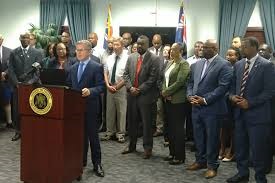 The important march on Sunday, led by our church leaders, supported by the Honourable Premier and Honourable Leader of the Opposition, which placed an emphasis on society and community, was an excellent example that these leaders, religious and secular, understand that.
The important march on Sunday, led by our church leaders, supported by the Honourable Premier and Honourable Leader of the Opposition, which placed an emphasis on society and community, was an excellent example that these leaders, religious and secular, understand that.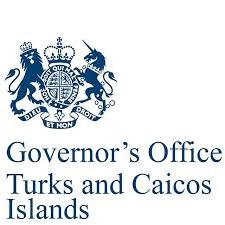 Finally TCI: we are bigger, we are better and we are stronger than allowing a small number of bad men, to bring fear into our amazing country. The stoicism we show in times of natural disaster is admirable; let’s show it now. As you hear the Commissioner and Premier speak let’s all of us assume ‘agency’, not just in observing the problem, but being a part of the wider societal solution.
Finally TCI: we are bigger, we are better and we are stronger than allowing a small number of bad men, to bring fear into our amazing country. The stoicism we show in times of natural disaster is admirable; let’s show it now. As you hear the Commissioner and Premier speak let’s all of us assume ‘agency’, not just in observing the problem, but being a part of the wider societal solution. The whole world must act now to remediate this crisis – flatten the curve – of this
The whole world must act now to remediate this crisis – flatten the curve – of this 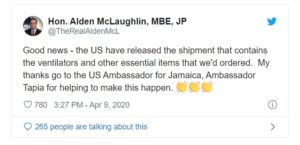
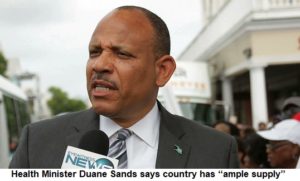
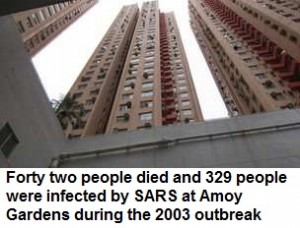 How can a community – the Caribbean region in this case – manage such an epidemiological crisis?
How can a community – the Caribbean region in this case – manage such an epidemiological crisis? The Go Lean book reports that previous Caribbean administrations have failed miserably in managing regional crises. There is no structure for cooperation, collaboration and coordination across borders. This is the charge of the Go Lean/CU roadmap. To effectuate change in the region by convening all 30 Caribbean member-states, despite their historical legacies or governmental hierarchy.
The Go Lean book reports that previous Caribbean administrations have failed miserably in managing regional crises. There is no structure for cooperation, collaboration and coordination across borders. This is the charge of the Go Lean/CU roadmap. To effectuate change in the region by convening all 30 Caribbean member-states, despite their historical legacies or governmental hierarchy. Let’s talk about ostracism …
Let’s talk about ostracism …
 There is a social group that tends to be victimized the worst, at that level: Nerds, “Geeks and Freaks”.
There is a social group that tends to be victimized the worst, at that level: Nerds, “Geeks and Freaks”.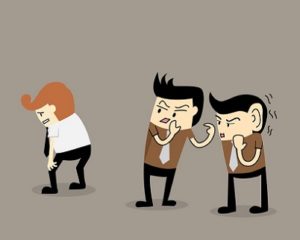 We must do the heavy-lifting to retain our people; we must protect the vulnerable, the weak and the innocent. We must be On Guard against bullying and other juvenile persecutions.
We must do the heavy-lifting to retain our people; we must protect the vulnerable, the weak and the innocent. We must be On Guard against bullying and other juvenile persecutions.


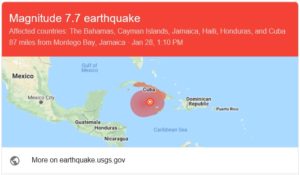
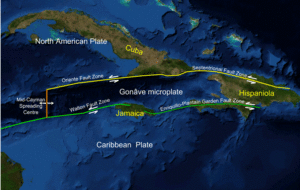
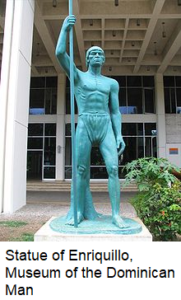 Several revolts followed in the first half of the 16th century, the most famous began in 1519. Enriquillo, one of the few remaining caciques, or indigenous chiefs, started the revolt with a large number of Taínos from the
Several revolts followed in the first half of the 16th century, the most famous began in 1519. Enriquillo, one of the few remaining caciques, or indigenous chiefs, started the revolt with a large number of Taínos from the 
 The imminent threat includes tornado landfall warning, tsunami, mudslide, volcano eruption, etc. The CU will extend this practice further by installing a standard audible siren system for any/all emergency events. A great lesson learned from the US Midwestern city of Omaha-Nebraska is the schedule for siren testing, the first Wednesday every month at 11:00am.
The imminent threat includes tornado landfall warning, tsunami, mudslide, volcano eruption, etc. The CU will extend this practice further by installing a standard audible siren system for any/all emergency events. A great lesson learned from the US Midwestern city of Omaha-Nebraska is the schedule for siren testing, the first Wednesday every month at 11:00am.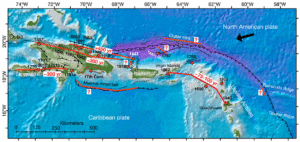
 We all know what that means: an arrested person elects to remain silent so as not to incriminate himself.
We all know what that means: an arrested person elects to remain silent so as not to incriminate himself. Yes, we can …
Yes, we can …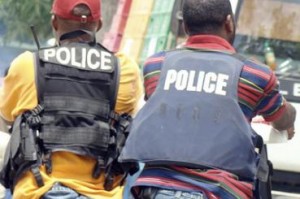 As related, Constitutional Law scholars refer to these two amendments as Criminal Proceedings provisions. These are not Rocket Science or Brain Surgery; the cause for justice should not be this complicated.
As related, Constitutional Law scholars refer to these two amendments as Criminal Proceedings provisions. These are not Rocket Science or Brain Surgery; the cause for justice should not be this complicated.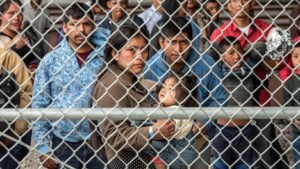
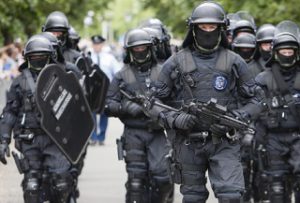 So many times, governmental institutions – think security forces – abuse their position/strength and exploit the rights and property of ordinary citizens.
So many times, governmental institutions – think security forces – abuse their position/strength and exploit the rights and property of ordinary citizens. 
 We can allow for sanctions and retributions against security forces/justice institutions for procedural violations while still pursuing justice. This approach works in civil proceeding, international peace-keeping and political cases (think impeachment); so there could be some “Solomonic” approach in criminal proceedings – especially when no death penalty is attached. (Ancient Israel King Solomon threatened death to a child in order to ascertain the true identity of the real mother – this proved to be indisputable wisdom).
We can allow for sanctions and retributions against security forces/justice institutions for procedural violations while still pursuing justice. This approach works in civil proceeding, international peace-keeping and political cases (think impeachment); so there could be some “Solomonic” approach in criminal proceedings – especially when no death penalty is attached. (Ancient Israel King Solomon threatened death to a child in order to ascertain the true identity of the real mother – this proved to be indisputable wisdom).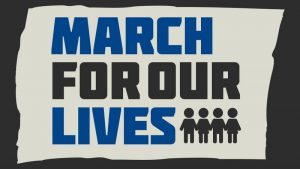
 The “Land of the Free and Home of the Brave” with its laissez-fare attitudes towards gun ownership and stockpiling of lethal weapons is not a positive attribute.
The “Land of the Free and Home of the Brave” with its laissez-fare attitudes towards gun ownership and stockpiling of lethal weapons is not a positive attribute.